Thurnby Mead Speech and Language Designated Specialist Provision (DSP)
Designation: Speech, Language and Communication Needs (SLCN)
Age Range: 5-11 years (Year 1-Year 6)
Available Places: 20
Meet the Team
| Mrs M Woodhouse | Miss F Nurgat | Mrs Shiria Masaddar and Ms Robyn Manchester | Mrs G Bhalsod | Miss Brown | Mrs W Follows | Mrs M Walton | Mrs S Flynn |
|---|---|---|---|---|---|---|---|
| Principal | SENCO | Speech and Language Therapist | Base 1 Teacher | Base 1 TA | Base 2 Teacher | Base 2 TA | HLTA |
Aims and Purpose of the DSP
The aims and purpose of the Thurnby Mead Speech and Language DSP are to:
- Provide children with specialist teaching targeted at those with SLCN
- Provide children with specialist teaching who have a hearing impairment but also require targeted SLCN
- Provide children with individualised speech and language therapy
- Provide a structured, supportive environment where children can feel secure, develop confidence and achieve their full potential
- Provide a broad and balanced differentiated curriculum using a wide range of teaching methods and styles to meet the needs of individual children
- Provide opportunities for specific interventions, for example to develop independence and social skills
- Enable children to be included in mainstream lessons and extra curricula activities whenever this is appropriate
- Work in close partnership with parents/carers, outside agencies and the children
Admission Criteria
The DSP is for children who have an Education, Health and Care plan (EHCP), which details their primary need as speech, language and communication. We also have children with hearing impairment with associated speech, language and communication needs. Included in the selection criteria are children with:
- phonological difficulties
- comprehension difficulties
- expressive language difficulties
- semantic and/or pragmatic difficulties
- articulatory disorder
- children will need speech and language therapist support at least 7 times per term, this must be specified in their EHCP
- hearing impairment with associated speech, language and communication difficulties
The DSP is unable to cater for children with complex physical and medical difficulties. We are also unable to cater for children with SEMH needs and complex ASD needs due to the children currently attending the DSP are vulnerable therefore children with significant behavioural needs will increase their anxieties further. Children given a place in the DSP are primarily from Leicester and Leicestershire.
Provision and Facilities
The DSP caters for up to 20 children across KS1 and KS2. All of these children have an Education, Health and Care Plan, detailing a primary need of speech, language and communication or hearing impairment with associated speech, language and communication needs. The DSP environment has 2 teaching classrooms (Base 1 and Base 2) and a speech and language therapy pod.
DSP Classroom
DSP Curriculum and Activities
Home to School Transport
Transport is provided in accordance with the Local Authority SEN transport policy.
Identifying and Reviewing Need
The DSP operates within the framework of the revised SEN Code of Practice 2014, Local Authority Guidance and the Leicester City Council MIN document for Speech and Language.
All children have individual outcomes, which include speech, language and communication targets. Progress towards outcomes are continually monitored and formally reviewed three times a year (once will be at the annual EHCP review) with parents/carers, and if appropriate, the child, in accordance with the revised SEN Code of Practice 2014. At these meetings new outcomes may be set in collaboration with professionals, parents/carers and the child were appropriate. Children’s outcomes are communicated clearly with all relevant parties involved in working with the children e.g. speech and language therapists.
Children may also undergo other formal and informal assessments, where appropriate, by the DSP team, SENCO and/or outside agencies, such as the Educational Psychologist.
Each child has an annual EHCP review where everyone involved with the individual is invited to attend and/or contribute a report. More frequent reviews are held if this is considered necessary.
Speech and Language Therapy
The speech and language therapists work with children either individually or in small groups to carry out targeted speech or language activities. The therapist collaborate with the DSP teachers and support staff to set children’s individual speech and language outcomes to enable these to then be worked on throughout the week.
The therapists also regularly meet with parents/carers to discuss progress and provide support to parents/carers on how best to support their child’s speech and/or language needs in the home environment.
The staff in the DSP use Cued Articulation, Makaton and Colourful Semantics to help children develop their speech, language, understanding and communication.
Cued Articulation (Cued-Articulation.pdf (leicspart.nhs.uk))
Colourful Semantics (Colourful-Semantics-1.pdf (leicspart.nhs.uk))
Makaton (What is Makaton? – About Makaton)
Access To a Broad and Balanced Curriculum / Inclusion
The DSP reflects the inclusive nature of the school. All children in the DSP follow a broad and balanced differentiated curriculum, which meets the requirements of the New National Curriculum at an appropriate level. The curriculum is flexible and is adapted to meet individual needs. Disapplication from National testing, such as SATS, may occur dependent on individual needs.
Where appropriate children attend mainstream classes and trips, with support if required; this inclusion is reviewed half termly. Children have the opportunity to take part in all school events and activities and have the same access to the school’s facilities and resources as all other children. Independence, self-help skills and speech, language and communication skills are integral parts of all aspects of the DSP curriculum.
Children in the DSP also have access to a wide range of specific interventions designed to meet the needs of the individuals within the DSP.
Pupil Voice
We capture pupil voice as part of our daily practise through formal and informal lessons. Pupil voice is always sought before the child’s annual review and termly through their EHCP tracker review.
Home-School Links
Parents/carers are actively encouraged to be involved with all aspects of their child’s education. Parents’ evenings are held twice and year, annual EHCP reviews and outcome reviews three times a year (these may be held at the same time as a child’s annual review and/or parent’s evening). Parents/carers are always welcome to make an appointment or have a telephone conversation to discuss any concerns they may have.
All children have a home-school book that can be used to share information on a daily basis. All children are set homework in line with school policy. Information on current topics and a list of key vocabulary is provided half termly.
Links Beyond School
Staff have access to the full range of services in the City and County in order to meet the needs of pupils. These may include the Educational Psychology Service, Special Needs Teaching Service and other agencies as appropriate to the children’s needs.
Transition to Secondary Education
The transition to secondary education begins in year 5, where children in the DSP are reassessed by relevant outside agencies to determine current level of need. Appropriate secondary provision will then be decided upon in collaboration with parents. Children from the DSP typically attend the following range of secondary provision on leaving dependant on their individual needs: mainstream, designated specialist provision within a mainstream school or special school provision.
Transitions pathways are followed in accordance to the secondary school’s policy e.g. transition visits, information gathering, and photo books. A transition speech and language group is also provided to all Year 6 DSP children, which focuses on key secondary vocabulary. This all ensures that every child is fully prepared for secondary education.
Exit Criteria
Children will exit the DSP and move onto a designated specialist provision or a specialist provision However, some children will exit the DSP and return to mainstream education if they are able to access the provision.

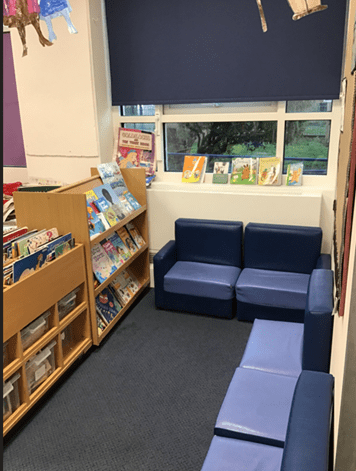
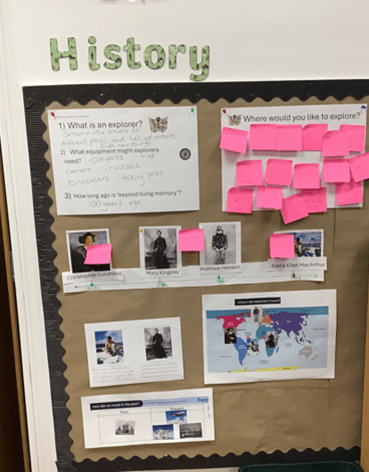
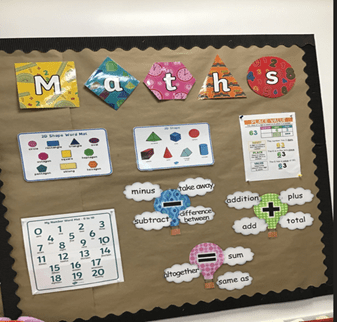
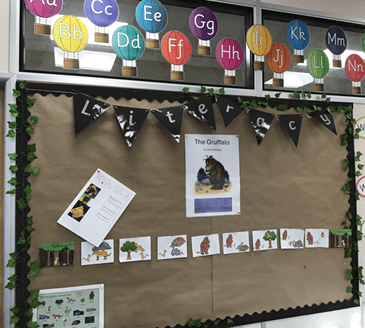
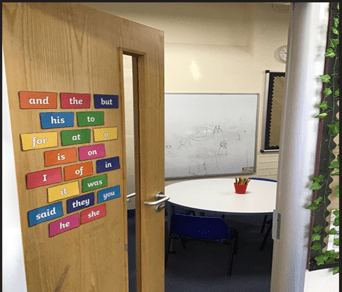
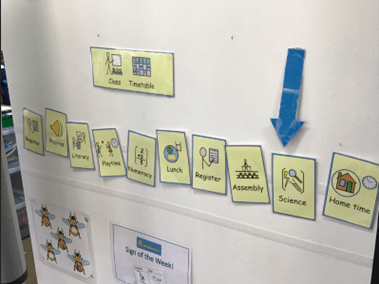
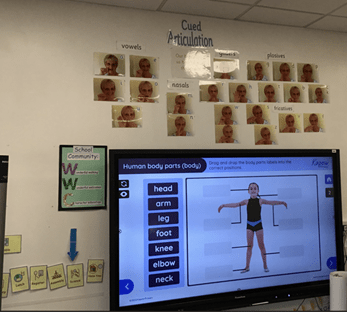
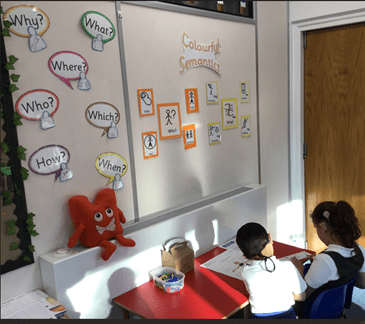
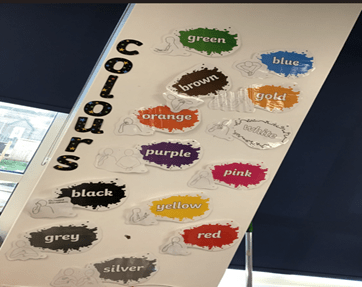
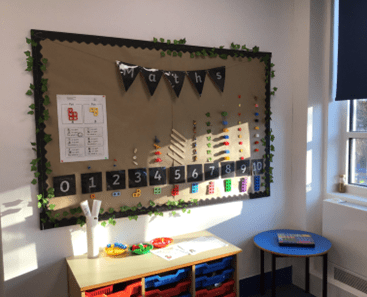









 Believe, Achieve, Celebrate
Believe, Achieve, Celebrate